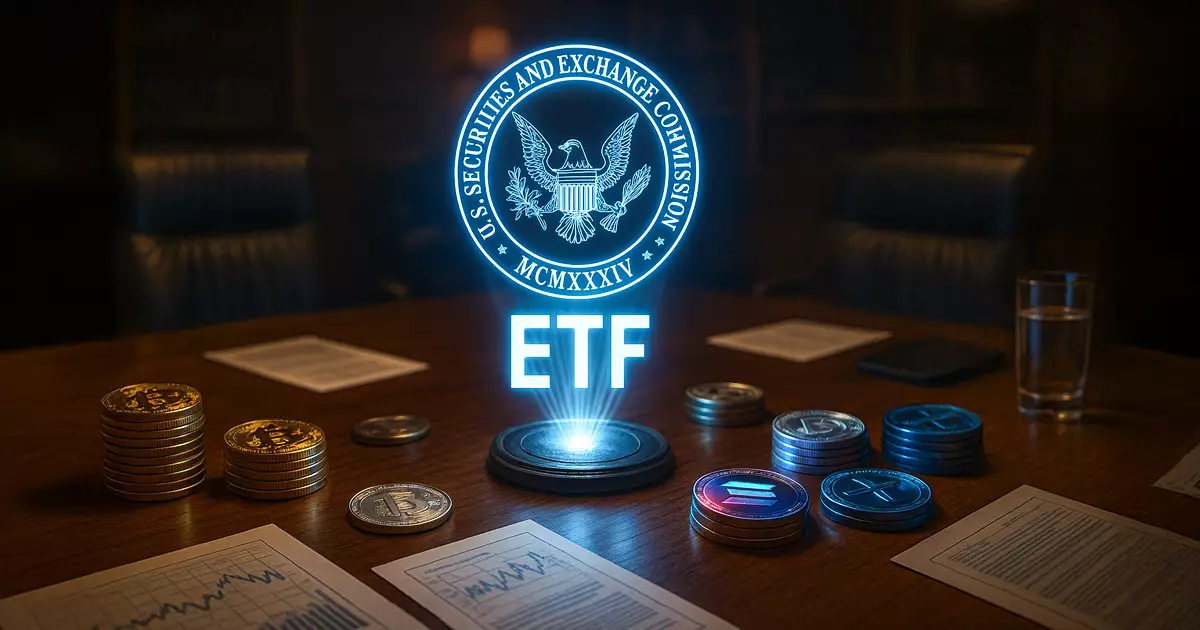In recent months, the SEC’s deliberate delays in approving numerous cryptocurrency ETF proposals signal a deeper apprehension about the rapidly changing digital asset landscape. While proponents see these postponements as prudent caution, a critical examination reveals that the agency’s hesitance may be rooted more in a desire to control and slow innovation than in genuine investor protection. This approach effectively hampers the potential growth of a burgeoning market that, under appropriate regulation, could serve as a catalyst for economic modernization.
The SEC’s focus on establishing comprehensive frameworks before greenlighting ETFs indicates a preference for entrenched control rather than adaptive oversight. Instead of embracing a flexible, innovative environment—especially for assets like Bitcoin, Ripple, Litecoin, and Dogecoin—regulators appear intent on maintaining the status quo. This cautiousness, cloaked as thoroughness, risks suppressing a segment that is fundamentally reshaping financial markets. An overly restrictive stance could stifle the entrepreneurial drive essential for technological advancement and market expansion.
Delay as a Strategy: Suppressing the Competitive Edge
The rationale behind these delays may go beyond standard regulatory review. Industry insiders suggest that the SEC is intentionally stalling to develop a clear, catch-all framework that will eventually standardize digital asset inclusion in ETFs. This strategy, if true, raises concerns about the agency’s priorities—favoring bureaucratic control over fostering innovation. By delaying approval processes, the SEC may be trying to establish a chokehold on the industry, preventing early movers from gaining advantageous positions before rules are firmly in place.
Such tactics risk stagnation. The proposed shift toward generic listing standards, which would simplify and expedite the process using predefined criteria, could be a positive step—if it wasn’t blocked or delayed. Instead of embracing these forward-looking systems, the SEC’s continued foot-dragging creates an uncertainty cloud that discourages investment and innovation. Market participants need certainty and clarity to thrive, yet the regulatory environment remains frustratingly opaque, favoring the status quo over progress.
Implications for Investors and Market Evolution
The current regulatory approach stifles the potential for retail and institutional investors to engage in a broader, more diversified digital asset market. ETFs are not just investment products—they are tools to mainstream cryptocurrencies, bringing legitimacy and liquidity. By holding up these approvals, the SEC inadvertently preserves a monopolistic control, benefiting traditional financial institutions at the expense of innovation-driven companies and everyday investors seeking diversification.
Furthermore, refusing to adopt a proactive, principles-based regulatory framework under the guise of caution reflects a myopic understanding of technology’s pace. Crypto markets are inherently fast-moving; regulatory frameworks must evolve swiftly or risk rendering the U.S. financial sector irrelevant in the global digital economy. The hesitation to approve ETFs based on an immature, case-by-case process undermines America’s competitiveness and economic resilience.
The SEC’s delays are more than bureaucratic hiccups—they are strategic obstacles safeguarding old power structures while hindering progress. Real leadership in regulation should foster innovation, not smother it in bureaucratic red tape. As the industry navigates these hurdles, the question remains: will regulators adapt swiftly enough to unlock the true potential of digital assets, or will they continue to serve as barriers in an inevitable technological revolution?



















Leave a Reply